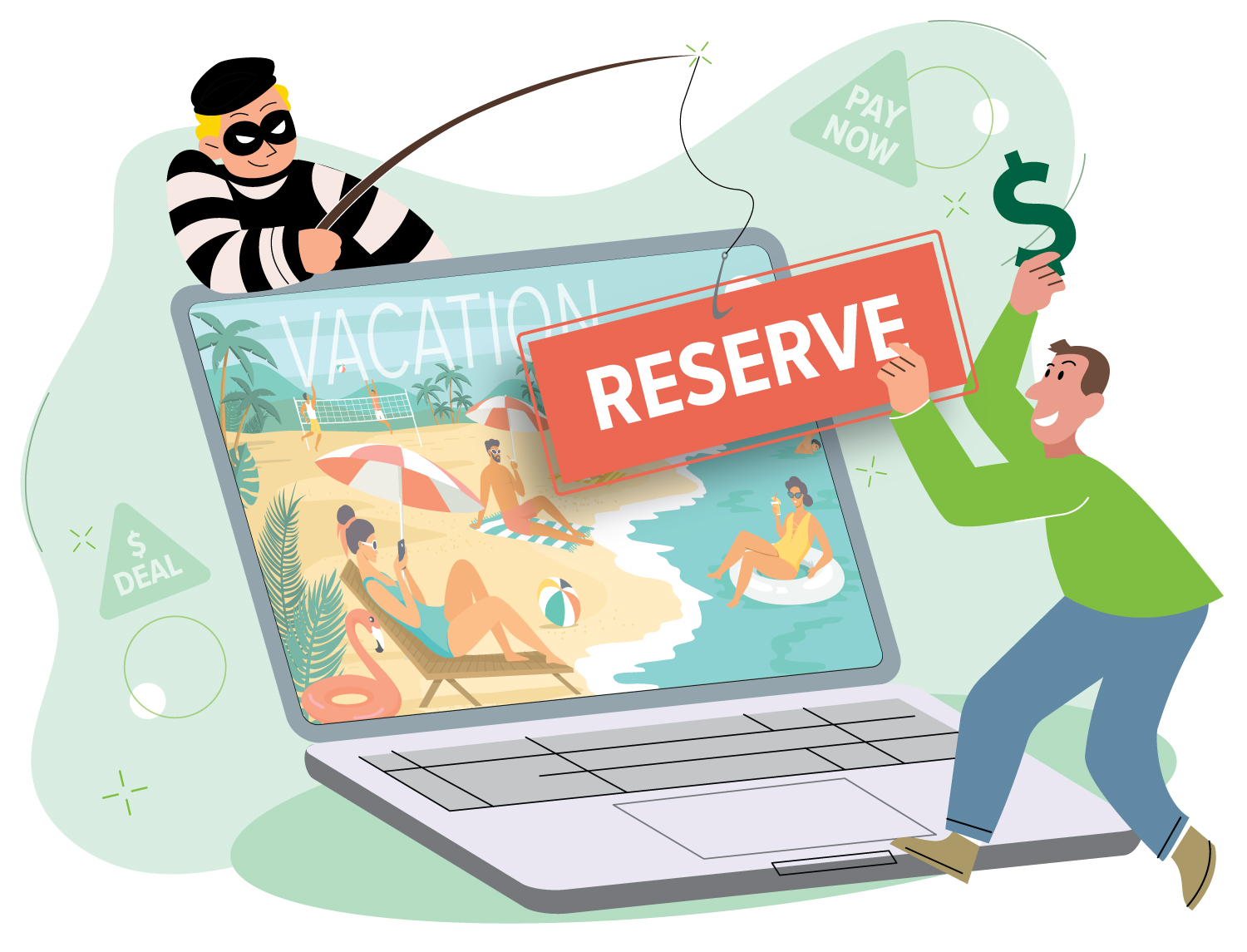 Ragib Hasan, Ph.D.
Ragib Hasan, Ph.D.
Photography: Lexi CoonSummer travel season is in full swing, and cybersecurity experts at the University of Alabama at Birmingham are warning travelers to be on the lookout for increased risk of cyberattacks. With millions of people planning and booking travel online, scammers are eager to take advantage of those who are not careful.
Ragib Hasan, Ph.D., associate professor in UAB’s College of Arts and Sciences Department of Computer Science, discusses the potential risks and scams that travelers may encounter during their trips and provides advice on how to avoid them.
When traveling, Hasan says, it is important to be vigilant about potential scams to minimize risks and enjoy to the fullest, without compromising privacy. Some of the scams include:
- Fake travel websites:There are many fake travel websites that offer fantastic deals to attract people. They will provide deep discounts not available elsewhere. But when the users pay for the booking, the sites will take their money and not provide any services.
- Phantom vacation rental:This type of scam is when scammers post fake photos for vacation rentals by copying photos of existing houses or condos and pretending to be the owner.
- Bait and switch:In these scams, customers are lured in with a great discount; but once they are well into the reservation process, various fees are tacked on.
- Skimming and card cloning:In these scams, criminals copy the credit card information and make fraudulent charges.
To avoid scams, Hassan recommends people be cautious of their data. Since most people use their smartphones these days to access banks or credit cards, it makes them a major target of criminals.
 Graphic by Jody PotterMake sure the site is safe
Graphic by Jody PotterMake sure the site is safe
Hasan advises sticking to known sites when making a reservation since third-party websites may not always be safe.
“Not all third-party travel booking sites are safe,” Hasan said. “When making a reservation for a hotel, vacation rental or travel, it is better to stick to well-known sites. If a third-party site is giving an amazing discount, verify the website/vendor and its reputation. The Better Business Bureau is a good place to see whether there are any complaints about a site. Avoid getting any deals from random social media pages that have been set up recently.”
Scammers can also create cloned versions of websites that look like well-known travel websites which can send phishing emails. To keep yourself safe from these scams, always verify the sender of emails and the webpage URL.
Protect personal data
Many people use cellphones to store their bank or credit card information, which makes smartphones an attractive target for criminals.
“Criminals can place card skimming devices on ATMs or other payment terminals,” Hasan said. “These devices can copy the credit card information or make fraudulent charges. So always keep an eye out for anything that looks unusual on the ATM or other payment terminals.”
While traveling, another data threat is connecting to nearby open Wi-Fi access points that have little to no security.
“Open Wi-Fi access points often have zero security, and using them makes your online activities, data and passwords, etc. exposed to criminals,” Hasan said. “If you have to use such open public Wi-Fi, please use a VPN to protect your data.”
Avoid using public cellphone chargers
The Federal Bureau of Investigation has warned consumers against “juice jacking,” where bad actors use public chargers to infect phones and devices with malware. Using these free public chargers can give hackers access to your phone, tablet or computer.
“Cybercriminals have misused public phone chargers to install malware into smartphones or to steal data from them,” Hasan said. “So it is best to carry and use your own USB cables and charging plugs.”
Do not disclose location on social media
While traveling, people often publicly post their location or activities/photos on social media. According to Hasan, this is similar to telling the whole world, including the criminals, that you are away from your home. Hasan says it is best to wait until you get back to post photos on social media.
Another common criminal technique regarding social media is to take over someone’s social media account.
“Scammers take control of social media and then send messages to all the connections that the victim is traveling and lost wallet or passports and needs money wired to them urgently,” Hasan said. “When you get such a message on social media, always contact them back through a phone call or other means to verify the message.”